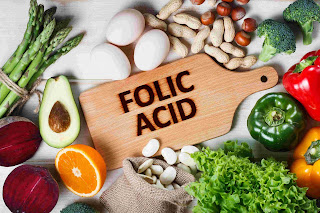
Folic acid, also known as folate, is a B vitamin (vitamin B9) that is required in the human diet. Because it is an essential vitamin, humans cannot produce it and must obtain it through their diet. Folic acid is essential for many bodily functions, most notably the formation and repair of DNA, as well as its participation in other biological reactions. It is also necessary for the formation of new cells, and is especially necessary for the production of healthy red blood cells.
Folic acid is so important to human health that it is found in a variety of foods, particularly breakfast cereal. Fortification is the process of adding vitamins to other foods. As a result, fortified cereal is one that has been fortified with vitamins.
Folic acid derives its name from the Latin word folium, which means “leaf.” This is due to the fact that leafy vegetables are high in folic acid.
A lack of folic acid (also known as a deficiency) can result in a variety of problems (called symptoms). Diarrhea, weakness, shortness of breath, nerve damage, mental confusion, forgetfulness, depression, sore or swollen tongue, headaches, irregular heartbeats (called palpitations), irritability, and small sores in the mouth and stomach are some of the symptoms (called ulcers).
Folic acid deficiency can also lead to a decrease in the number of red blood cells in the body. Anemia is the medical term for this condition. A macrocytic anemia is a type of anemia caused by folic acid deficiency. Because the term “macrocytic” refers to “large cells,” a lack of folic acid results in low levels of red blood cells, and the individual red blood cells are extremely large.
Folic acid deficiency in a pregnant mother can result in a variety of problems for the developing baby. The most serious of these, known as neural tube defects, can cause problems with brain and spinal cord development.
Because folic acid is so important for rapidly growing and dividing cells, many cancer drugs are designed to interfere with it. These drugs slow or stop the growth of cancer cells, but they also affect healthy cells and have numerous side effects.
Leafy vegetables (spinach, asparagus, turnip greens, lettuce, and some Asian vegetables) are high in folic acid, but there are many other sources, including legumes (beans, peas, lentils), egg yolks, baker’s yeast, sunflower seeds, liver, kidneys, and fortified grains (pasta, cereal, bread).
Some foods contain moderate amounts of folic acid, such as oranges, pineapple, cantaloupe, honeydew, grapefruit, banana, raspberry, and strawberries. Beets, corn, tomato juice, broccoli, Brussels sprouts, romaine lettuce, and bok choy all have more moderate amounts.
The most important time for a woman who wants to become pregnant is to start taking folic acid a few months before conception.
Folic acid has been studied for its potential role in the prevention of heart disease, stroke, depression, behavioral issues, and age-related eye problems. It has also been studied in the fight against cancer, anemia, and other diseases.








